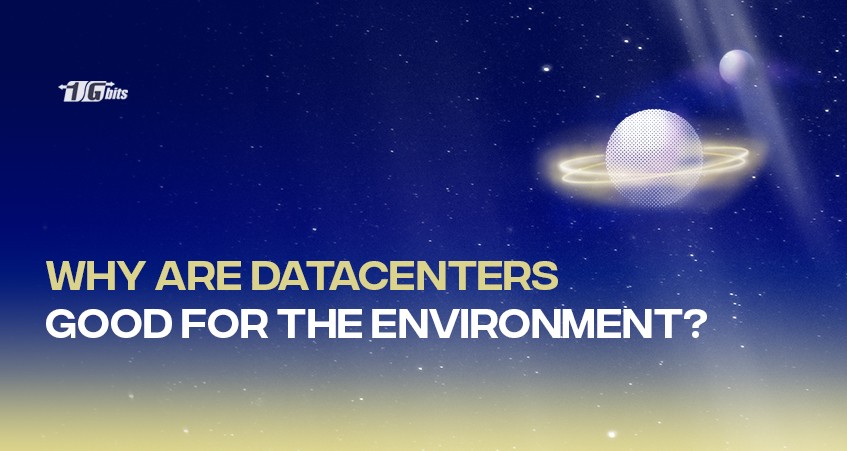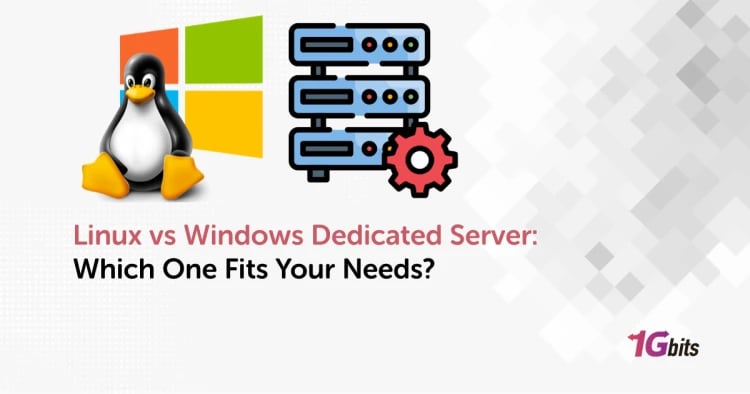Data centers are good for the environment in several ways. First, they allow businesses and individuals to reduce their carbon footprint by centralizing computing power and reducing the need for individual hardware. This means energy can be used more efficiently, and fewer resources are needed to power and cool the machines. Additionally, many data centers use renewable energy sources like solar, wind, or hydropower to reduce their environmental impact further.
Moreover, data centers have become more efficient, with newer technologies and advanced cooling systems that use less power and water. Finally, data centers can also help reduce e-waste by extending the lifespan of computing hardware, as companies can outsource their computing needs to the data center rather than invest in new equipment every few years. Overall, data centers play a crucial role in reducing the environmental impact of the tech industry while enabling businesses to meet their computing needs.
What are Datacenters?
Data centers are large facilities used to house computer systems and other digital equipment. They are designed to provide a secure and controlled environment for storing, managing, and processing digital data. Data centers are typically used by businesses, governments, and other organizations that require a large amount of computing power and storage capacity.
These facilities range from small server rooms to massive complexes covering hundreds of thousands of square feet. Data centers are equipped with advanced cooling systems, backup power supplies, and other infrastructure to ensure continuous operation and prevent data loss in case of power outages or other disruptions. They play a critical role in modern society, powering everything from social media and e-commerce to scientific research and national defence.
What can you do with Datacenters?
Data centers are essential for a wide range of computing applications and services. Cloud computing, big data analytics, artificial intelligence, e-commerce, social media, online collaboration, and scientific research are just some of the many applications that rely on data centers. Data centers enable businesses and individuals to access computing resources, software, and data storage over the internet, allowing them to operate and innovate more efficiently.
They provide the necessary infrastructure to store, process, and analyze vast data, allowing companies to gain insights and inform decision-making. Data centers are also critical for training and running complex machine learning and artificial intelligence models, which require massive computational power. Data centers are vital in powering the digital economy and supporting many aspects of modern society. Data centers enable a wide range of computing applications and services, including:
Cloud computing
Data centers are the foundation of cloud computing, which allows businesses and individuals to access computing resources, software, and data storage over the internet. Cloud computing is one of the primary applications of data centers. Cloud computing refers to the delivery of computing resources, software, and data storage over the internet rather than from local servers or personal computers.
Cloud computing allows businesses and individuals to access computing resources on demand and pay only for what they use rather than investing in their infrastructure. This allows companies of all sizes to scale their computing resources up or down as needed without large capital investments.
Data centers provide the infrastructure for cloud computing services, including servers, storage, networking, and software applications. Cloud computing providers use data centers to host their services, delivering computing resources to users over the internet. The cloud computing model has several benefits, including improved efficiency, scalability, and cost-effectiveness.
Cloud computing services can be accessed from anywhere worldwide, offering high security and data protection. Data centers are essential for delivering the computing power and storage capacity required for cloud computing services to function at scale.
Big data analytics
Data centers are used to store, process, and analyze vast amounts of data to extract insights and inform decision-making. Big data analytics is another application that heavily relies on data centers. Big data refers to extremely large and complex data sets that traditional data processing tools cannot process. Big data analytics involves using advanced computing technologies and techniques to extract valuable insights and patterns from these massive data sets. Data centers provide the necessary infrastructure to store and process these vast amounts of data and the computing power to run complex algorithms and models.
Data centers, such as distributed computing frameworks like Apache Hadoop and Apache Spark, use specialised hardware and software to manage big data analytics workloads. These frameworks distribute the workload across multiple servers, allowing for the parallel processing of large data sets. Data centers also use high-performance computing technologies, such as GPUs and TPUs, to accelerate the processing of large data sets and improve the performance of machine learning and artificial intelligence workloads.
Big data analytics has numerous applications, including business intelligence, marketing analysis, scientific research, and healthcare. By leveraging data centers to process big data analytics workloads, organizations can gain valuable insights into customer behaviour, market trends, and operational efficiencies, leading to improved decision-making and increased competitiveness.
Artificial intelligence and machine learning
Data centers are necessary to train and run complex machine learning and artificial intelligence models, which require massive computational power. Artificial intelligence (AI) and machine learning (ML) are two areas of computing that are heavily reliant on data centers. AI involves developing intelligent computer systems that can perform tasks requiring human intelligence, such as image recognition or natural language processing. ML is a subset of AI that uses algorithms to analyze data, learn from it, and make predictions or decisions based on that data.
AI and ML require significant computational power and large amounts of data to train and run models. Data centers provide the necessary infrastructure to store and process these large data sets and run the complex algorithms required for AI and ML workloads.
To run AI and ML workloads, data centers use specialized hardware, such as graphical processing units (GPUs) or tensor processing units (TPUs), which are optimized for these workloads. These specialized hardware components can accelerate the processing of large data sets and improve the performance of AI and ML models.
AI and ML have numerous applications, including self-driving cars, facial recognition, fraud detection, and personalized medicine. By leveraging data centers to run AI and ML workloads, organizations can develop innovative applications and services that improve efficiency, reduce costs, and drive growth.
E-commerce and online transactions
Data centers power e-commerce websites and process online transactions, ensuring secure and reliable transactions. E-commerce and online transactions are other areas that rely on data centers. Online transactions involve the transfer of funds or information over the internet, and they require a secure and reliable infrastructure to ensure the privacy and integrity of the data. Data centers, including servers, storage, and networking equipment, provide the necessary infrastructure to support e-commerce and online transactions.
To ensure the security and reliability of online transactions, data centers use encryption technologies, firewalls, and other security measures to protect sensitive data. Data centers also use redundant power and cooling systems to ensure continuous operation and minimize the risk of downtime, which could result in lost revenue or customer dissatisfaction.
E-commerce platforms, such as Amazon and eBay, use data centers to process millions of transactions daily, enabling them to offer products and services to customers worldwide. Data centers also support online payment platforms, such as PayPal and Stripe, which enable secure and reliable transactions between buyers and sellers.
Data centers are essential for supporting e-commerce and online transactions, providing the necessary infrastructure and security measures to ensure the privacy and reliability of online transactions.
Social media and online collaboration
Data centers support the infrastructure for social media platforms and online collaboration tools, allowing people to connect and share information online. Social media and online collaboration are additional areas that depend on data centers. Social media platforms like Facebook, Twitter, and Instagram enable users to connect and share content with others worldwide. These platforms require massive amounts of computing power and data storage to support the billions of users accessing them daily. Data centers provide the necessary infrastructure for social media platforms, including servers, storage, and networking equipment.
To provide a seamless user experience, social media platforms use data centers that are geographically distributed, allowing users to access content from servers located closest to them. This reduces latency and ensures that users can access content quickly and reliably.
Online collaboration tools like Microsoft Teams and Google Workspace also rely on data centers to support their users. These tools enable users to collaborate in real-time, share files, and communicate with each other from anywhere in the world. Data centers provide the necessary infrastructure to store and process the data required for online collaboration tools.
Data centers are essential for supporting social media platforms and online collaboration tools, providing the necessary computing power and data storage to support billions of users worldwide.
Scientific research
Data centers are essential for scientific research, providing the computing power to model complex systems, simulate experiments, and analyze large datasets. Data centers are also critical for scientific research. Many scientific disciplines, such as astronomy, genomics, and particle physics, generate vast amounts of data that require significant computing power and storage to analyze. Data centers provide the necessary infrastructure to store, process, and analyze these large data sets, enabling researchers to make groundbreaking discoveries.
For example, the Large Hadron Collider (LHC) at CERN generates petabytes of data each year, requiring significant computing power and storage. Data centers provide the necessary infrastructure to store and process this data, enabling researchers to analyze the results of particle collisions and make discoveries about the nature of the universe.
Genomics research is another area that relies heavily on data centers. Genomics involves analyzing the genetic information of organisms to understand their characteristics and develop new treatments for diseases. Genomics generates large amounts of data that require significant computing power and storage. Data centers provide the necessary infrastructure to store and process this data, enabling researchers to make discoveries about the human genome and develop new disease treatments.
Data centers are essential for supporting scientific research, providing the necessary infrastructure to store, process, and analyze large data sets generated by many scientific disciplines. Data centers are critical in powering the digital economy and supporting many aspects of modern society.
Why Datacenters are good for the environment
Data centers can be good for the environment in several ways. One of the primary benefits of data centers is that they enable companies and organizations to consolidate their IT infrastructure, reducing the need for multiple servers and other hardware components. This can result in significant energy savings, as fewer devices are required to perform the same tasks. In addition, data centers are designed to be highly efficient, with features such as advanced cooling systems and power management technologies that minimize energy consumption.
Another benefit of data centers is that they often use renewable energy sources, such as solar, wind, or hydropower, to power their operations. This reduces the dependence on fossil fuels and greenhouse gas emissions, helping mitigate climate change's impact.
Data centers can also enable organizations to reduce their carbon footprint by allowing employees to work remotely. By using online collaboration tools and accessing applications and data stored in the data center, employees can work from anywhere worldwide, reducing the need for travel and the associated carbon emissions.
Finally, data centers can facilitate the development of sustainable technologies, such as smart grids and electric vehicles. By providing the necessary computing power and storage to analyze and process data from these technologies, data centers can help to accelerate their development and adoption, leading to further environmental benefits.
Data centers can be good for the environment by enabling energy savings, using renewable energy sources, facilitating remote work, and supporting the development of sustainable technologies.
Last word
In conclusion, data centers can positively impact the environment by reducing energy consumption, using renewable energy sources, enabling remote work, and supporting the development of sustainable technologies. By consolidating IT infrastructure and using energy-efficient technologies, data centers can reduce the carbon footprint of organizations and companies.
Using renewable energy sources can further reduce greenhouse gas emissions and help mitigate climate change's impact. Remote work made possible by data centers can also reduce the need for travel, resulting in further carbon emission reductions. Finally, data centers can facilitate the development of sustainable technologies that can positively impact the environment, such as smart grids and electric vehicles. Overall, data centers can play an important role in promoting sustainability and mitigating the impact of climate change.
People also read:









